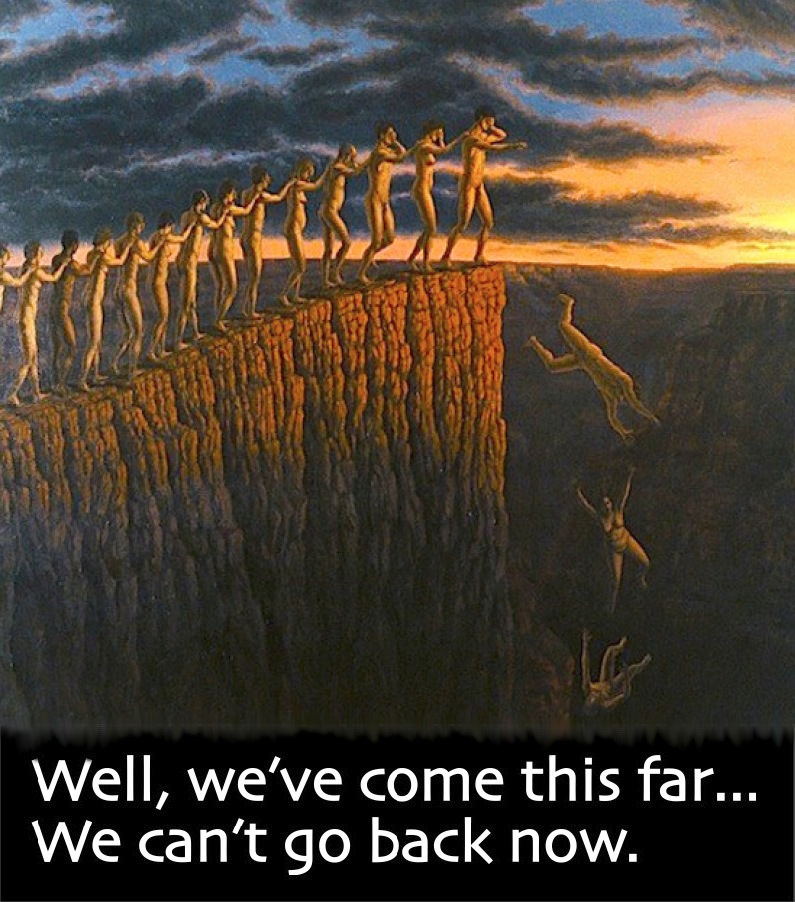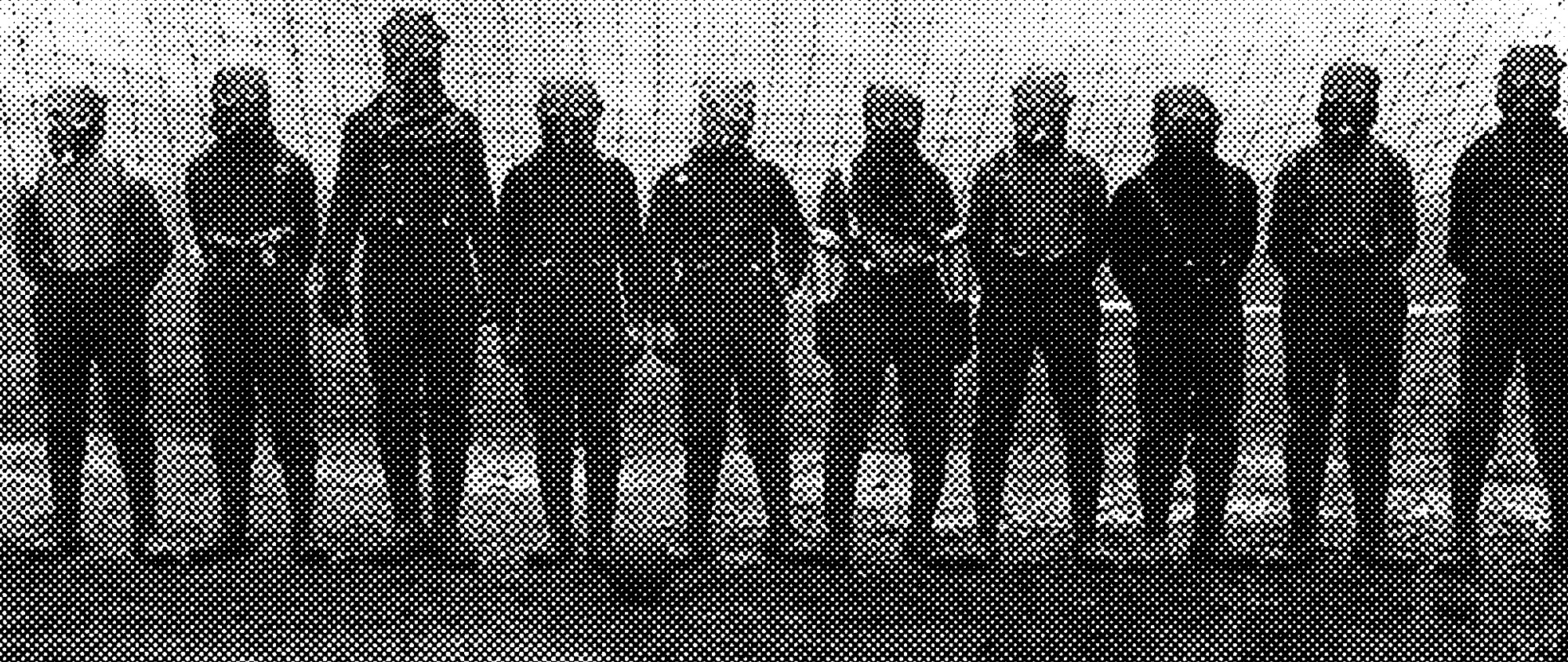To My Friends
 •
by
•
by Silas Soule
Live Sharp  Look Smart
Look Smart
The venerable Gnilraps not too long ago challenged the socialist-freedom poets, gangsters and organizers with whom we both hang now to consider, with some degree of seriousness, what socialism, democracy, freedom and activity (in the good existentialist sense of those terms) really mean in eRepublik, how they, as activists and militants and engaged players, might really go about fomenting change and e-existence in a useful manner. And so on and so forth. You know Brother Gnilraps. He can go on, right?
Yeah. Not like me..
So. In my typically clumsy way, I have lost the link to his thought-provoking write-up. But I thought I would, nevertheless, try to pick up the threads he started to spin by posing some additional questions to my friends. Really, these are questions to myself to.

(Forewarned is forearme
😛I remain, as ever, a lazy and aloof wanderer, more interested in babble than in rabble. My notes are not intended as playbook, guidebook, or beacon of light. Nor as a critique directed at my erstwhile ideological opponents at e-home or e-abroad. I have no heartfelt advice for would-be fellow travellers. Only perhaps a few solitary signposts in the sea.
Yes, just more words, words, words my good lords and lovely ladies. And between whom? Haha. Well. When I was young I went crazy for love too, almost as bad as this riotous rambling writing of a lot of words spilled out into the void of a sillified browser game. And on what subject, you ask? You. You? A fish seller? You... seller of fish!? Ask me "between whom"? Indeed!
What? Oh, you seek to know the matter that I write of?
Yes. It is slanders, sirs. Mainly slanders.)

The question arises: can we detect early indications of "civilizational mutation" within the game? Even if it lacks its own language or compass and is burdened by the weight of ideological legacies from the past and can be discerned only in the midst of great confusion, we should ask first and foremost: Is revolution afoot?
The somewhat difficult fact of the matter is that the truth does not have an owner. There is no "sound of the season". Nor is there a point in convincing anyone of anything. So to those who in some way are already walking together even without knowing each other, I address the question, not of "What is the good socialism?" nor "What is the necessary democracy?", but rather: "What is the shape of the new world's revolution?".
I expect this is a matter of recognizing a series of signals, such as those indentations left by hikers for other lovers of long walks, with this difference: that the path did not previously exist, but rather is made -- collectively -- by the walkers.

ALWAYS SEEK to EXPAND the OPEN SPACES
It seems to me we must ask what are the potentialities and limitations of the "open spaces" of eRepublik. Not as a scattered series of unconnected eruptions and attempts at transformation, but rather as a historical sequence of intertwined insurgencies. When the context has been altered, it is like for a delightful moment legitimacy is drowned in drink and e-reality is redescribed. But in the end macro-politics always seems to wash back in like a gradual reflux with it attendant distress.
So I look for the appearance of those "hegemonic operations" which threaten to burst boundaries. They are felt as "hegemonic" expressions of (counter-)power when we can detects in them the three passions I noted in my last article, The Revolution of Everyday eRepublik:
1) Passion for the destruction of slavery, which is the joy of abolishing boredom.
2) Passion for smashing constraints, which is the joy of breaking social taboos.
3) Passion for realizing disappointed hopes, which is the existential joy of transcedence over the bourgeois negativity of "yes it sucks, but it is the best we can hope for".

It means being willing to go for a ride. It means taking advantage of ruptures and shifts in "common sense". It is about conquering public opinion, about taking votes away from the traditional liberals and conservatives, disempowering institutional power, and pushing the limits of parliamentary democracy to the breaking point.
Leaving aside metaphysics, and considering only being, we know that infinity resides, mathematically, in exceeding known limits. And we can say, even if we can not visualize it, that something must be there beyond the last known ordinal. It is same things as the name of being, isn't it? It is the void, the set-of-things-to-be, the unknown, the coming-into, the becoming, the around-the-corner.
This void is where revolution lives every day. It is not inside the walls of the assembly, but in all those plazas, squares, zocalos, parks, village greens and commons out there in front of the assemblies. Ontologically, it speaks and thinks in terms of non-reified presentation, not in neatly-packaged re-presentations.

What I mean is: are there not other options? Can we not imagine a non-electoral or non-institutional expansion of the potential of the Open eSpaces? And I would posit that this cannot either pre-suppose a simple return to micro-projects, local struggles or interesting chats amongst the already-convinced, as satisfying as they are. It would need to be, if it is to exceed limits, a going-beyond the revival of any known political verticalisms, and going-beyond beyond the temptations of nostalgia.
It is the questions a traveller asks: How to keep going? And to go even further?
Frankly, our in-game imaginations are stunted by the twin disasters of authoritarian 20th century communism and the on-going steamroller of consumer spectacle engendered by triumphant global-oligarchic capital, which continues to expand its colonization of our minds, our eyes, our everyday lives, and -- as implied in my last piece -- of time itself, of our very sense of "age".
To pursue a radical rupture with parliamentary democracy, including its inverted evil-e-twin: the "democratic dictatorship" -- is the only possible framework for considering the emergence of new form of e-life.
The e-revolution, if it is at all, cannot be an "objective", but must be a "process".

ETHICS and TRUTH
Here is some of the detritus:
* The burning remnants of small e-countries bereft of players due to relentless colonization.
* The hollowed-out shell of great countries bereft of real national flavor due to the fears of their real-life overlords that, in eRepublik, of all places, their subjects might find too much freedom. (I'm looking at you: China and Iran)
* The burnt-out malaise of players black-listed, black-balled, shut-down, shut-out and shut-up by the "experts", the "veterans" and the narcissists of the mechanical game.
* And everywhere a generalized weariness of players too in-love to leave yet the burnt-out shell of a once-great-idea despite its deadly dilution by cutting agents.
And behind each of these, there are common and often anonymous players who say "enough!", their avatars courageously occupying space doing what they should not be doing:
* Defending and helping to build back up the small countries.
* Promoting as proxies the e-honor of the great nations of our common human heritage, even if various curtains of real life e-censorship prevent their true owners from expressing it.
* Continuing to write, to participate, to demand, to rebel, to argue, to rally, to fight, to organize and to think new thoughts against the heavy police materialization of an odious e-order.

These are gestures that are crazy, in the sense of being unpredictable and impossible, defying the state of things. These are the scenes that redefine and displace the threshold between what is tolerable and what we will no longer tolerate. Scenes that can move us and call for a break, even a clash, between dignified e-lives and e-lives unworthy of being e-lived.
The movement of the Open Spaces will unsettle some of the "lifelong activists" of eRepublik because it does not start from political ideologies, but from an explanation of the e-world, from ethical truths. Delegitimized power continues to operate because it is not fundamentally sustained by our agreement and consensus, our belief in its explanations, but rather by the subjection of our avatars, the anesthesia of our e-sensibilities, the management of the imagination and of the logistics of our e-lives.
The neutralization of subjective actions that can bring about a new frontier reflects a lack of assertions on the ways in which we intend to inhabit the e-world and conduct ourselves in it. It is the truths of our sensibilities: what we feel about something, more than our opinion of it, that matters the most. These are truths that connect us to others feeling the same thing. They are not truths that illuminate, but truths that burn.

CRITIQUE of DEMOCRACY
The demand for democracy under any of its forms -- representative, direct, digital, constituent -- is divorced from the ethical truths that emanate from the open spaces. On the contrary: the imaginary horizon of democracy fatally diverts us and leads us onto a mine field.
In the democratic agora, rational beings argue and counter-argue to make a decision. The assembly brings players into a (meta-)space separated from e-life and the e-worl
😛it is separated, in fact, to better govern us. This is a natural by-product of and requirement for democracy. Democratic governance requires an empty space where citizens can deliberate free from the pressures of "necessity".
The critique is not of democracy per se, rather it is a critique of democracy per quod, which is to say: of blockages, of the observation that impasses are not resolved, that words that are too-often distanced from actions, of "leaders" putting themselves "before", of decisions that never implicate, of the stifling of free initiative and dissent, of the the fetishism of procedures and formalisms, of using power struggles to condition decisions, of over-centralization and bureaucratization, and so on.

The revolutionary potential of the occupation of open spaces is not so much when they propose an alternative General Assemblies (as interesting as that can be) but when they encamp, which at its root can be understood to mean either "when they sleep over" or "when they refuse to leave". It is a paradigm of inhabiting, a habit of encamping. It is the tendency to create ones own infrastructure: housing, factories, mutual aid, libraries, schools, care facilities and so on, which opposes the habits of "government".
In the paradigm of not simply "participating" but of "inhabiting", the opposition between subject and the world vanishes. New worlds comes into being. Rather than an decree, there is an elaboration. Not the result of a series of methodologies or procedures, but a discipline of paying attention to what happens.
Decisions are not made. They ignite. They are not choices, but inventions emerging from the pressure of concrete situations or problems.
Democracy per quod (as we know it, as it is actually practiced) aims to confuse the governing and the governed. We appeal to scandal with the cry "they don't represent us", but it never takes long for the "true democrat" to arrive and assure us that, this time around, with him, there will be "a government of the people". And so the reabsorbtion occurs, the reflux uurps its way back.
A "government of the 99 percent" could be the most oppressive and even murderous of all. Who could question it? I only draw that distinction in order to note that, whenever the part is made t0 pass for the whole, it places the adversary in the position of monster, of criminal, the enemy to demolish.
The creation of "ungovernable" self-organized worlds, without a trace of "constituent power" or "new institutionality" emerging from it, will always be a difficult and dangerous field of dispute. One becomes ungovernable by refusing to legitimate oneself by reference to a superior principle, by happily staying forever naked, assuming the always local and situated, arbitrary and contingent character of any political position.

REVOLUTIONARY POWER is LOGISTICAL
In every country of e-Republik, the revolutionary players seek to surround, tease, assault, mock and occupy the parliaments. These sites of institutional power have bewitched the attention and desire of the movements for more open spaces -- and, maybe because of this, the electoral obsessions are their logical continuation, even when the ersatz "democrats" mock themselves, their ironic sensibilities having withered on the vine, evidently, with phrases like "the peoples democratic dictatorship".
But is it really certain that that is where power lies?
The Volunteer Invisible Old Farts "Saturday-Night-Is-Time-for-Action" Faction of the Revolutionary Committee of the Socialist Freedom Party, after long deliberation, has proposed a very different idea: that power is logistical and resides in infrastructure.
It is not representative and personal. It is architectural and impersonal. It is not theater. It is steel or brick; it is a channel, an algorithm, a computer program.
Government does not reside in the government. It is incorporated into the objects and infrastructure that organize our everyday game lives. Any government-issued constitution is worthless. The real constitution is technical, physical and material. It is constructed in the materials conditions of e-existence. It is silent. It has no explanations to offer, and no representatives. It is a power to which it is totally useless to oppose a discursive counter-hegemony.
To be clear: the Russian Revolution was a catastrophic error because it distinguished the means from the ends, thinking that labor could be liberated through the same chains of capitalist assembly. In fact the ends are not inscribed in the means: each tool and each technique configures and embodies a certain conception of life, a world of sensibilities. It is not about "taking control" of the existing techniques, but subverting, transforming, reappropriating, detourning, hacking them.

The hacker spirit is concerned with sharing knowledge. The hacker spirit breaks the "naturalization" of "black boxes" -- those opaque infrastructures that constrain our everyday gestures and possibilities.
But neither is this journey about substituting "a thousand hackers" for Trotsky's "thousand technicians".
It is to collectively become hackers, a becoming-hacker of the masses of players constructing new "cities" in the open spaces of our "governed" e-nations, capable of reproducing all parts of game life for weeks on end.

trans: "Ramona (a well-known Zapatista), the most bad-ass girl"
The NEW COMMUNES
Classical politics, including classical e-politics, separates life from the everyday. Thus e-Life "takes place" somewhere else, on another site, leaving eRepublik to become a desert.
The e-world revolution must be, by contrast, a process of repopulating the e-worl
😛life surfacing, unfolding, and self-organizing, in irreducible plurality, on its own.
The word "commune" should be re-appropriated from the assemblies of power. It should no longer be simply a synonym for "cheap labor on behalf of the government" or "tax-free labor for the party or the militia". Rather, let's reinvest this word with its original senses of both a social relation and a territory.
Faced with the existential liberalism that each player has their own substantial and subjective dignity, the Commune is the pact, the oath, the commitment to face the e-world together. And it is a place, where sharing is physically inscribed, the materialization of a desire for common life.

Is this a proposal for the formation of tribes and gangs? Not exactly. Although I am remembering fondly some old attempts along these lines that were quite delightful, and thinking also of others who have formed trans-national "families" within the game, it seems to be that a Commune cannot and should not live closed off and isolated from the world -- it cannot exist only on a "meta" plane, in other words -- but needs to be attentive to what escapes and overflows it, in a positive relationship with "the outside".
Neither means for an end, nor ends in themselves, eRepubliks New Communes can follow a logic of expansiveness, not of self-centeredness.
Nor do I mean "territory" in the sense of a specific neighborhood of an existing geographical or political "entity, but more a territory invented by the Commune itself, not pre-existing, but activated, creating and drawing-in, offering shelter and warmth, potentially without bounded limits, but a mobile and variable geography, a floating e-city in permanent construction.
The universal is simply the local without walls.

In PRAISE of TOUCH
You might say my question comes down to this: can we think of e-revolution as separated from the paradigm of government, as distinct from the idea of the subject (or the vanguard) against the world, of pushing it in a "good" direction, of using Science and capital-K Knowledge to mold e-reality into the revolutionary "product", to fine-tune the adjustment between means and ends, and so on?
In the paradigm of government, being militant implies always being angry with what happens, always chastising others, always frustrated because the real is permanently headed in the wrong direction and you have to subdue it, direct it, straighten it out.
There could be another path to follow. We might learn to fully inhabit, instead of governing, the process of change in the e-World. Being affected, and being able to affect in turn. Grasping the possibilities of each moment because we inhabit a Communal space that expresses our locality, acknowledges and respects our subjectivity, and provides us with a means for interacting universally.
This means we would be in-touch, that revolution is the increase of potentialities inscribed in situations, and that contact is that which allows us to feel where potential is circulating and how to accompany it with care, without forcing it.
And it is this sensibility that we need more than a thousand courses of formation in traditional political and nationalistic content. Strategic intelligence is born from the heart. Misunderstanding, negligence and impatience are the enemy.
XOXOXOXOXOXOXXOOX,
PQ


Comments
The difference between what we do and what we are capable of doing would suffice to solve most of the world's problems.
There is a monopoly on our infrastructure. It needs to be stopped or we need to get new infrastructure.
Holy crap, this does change everything
There is no tl;dr, and my eyes are on fire because it's 4 AM 🙁 hopefully someone will make a spiteful reply and I'll remember to read this. Voting it anyways to keep it in the top 😁
Fire is catching.
[removed]
To My Friends
https://www.erepublik.com/en/article/2586181/1/20
READ|VOTE|SUBSCRIBE|SHOUT
Great images you picked for this article.
another cut and paste exercise?
Pretty much, but with some allusions to Shakespeare thrown in. Along with pretty pictures.
"Furthur" is spelled incorrectly on that bus. That was bothering me.
la más chingona, eres tu!
Interesting read as always! I too have come to believe in the idea of appropriation and "hacking" the system, in both sense of the word, into pieces to reassemble into something new and actually functional.
. . . . . . . .Nice PQ.
We can always try to use as much open space as possible, to unite what we can unite, to free what can be freed as long as we live our lives with pleasure and solidarity.
Vote for awesome picture of Further bus.
However, unless your are in the final phase of a dissertation on the psycho-social constructs of MMORPGs, an edit or two would make this a better read.
Final phase.